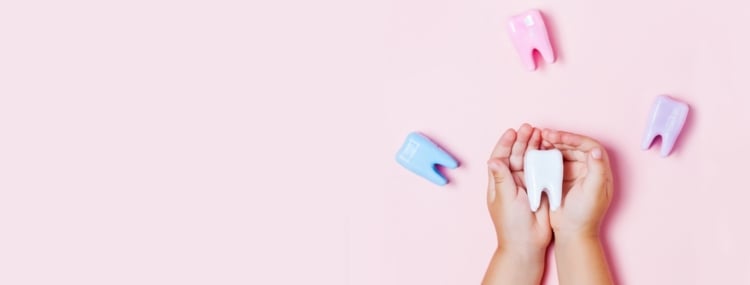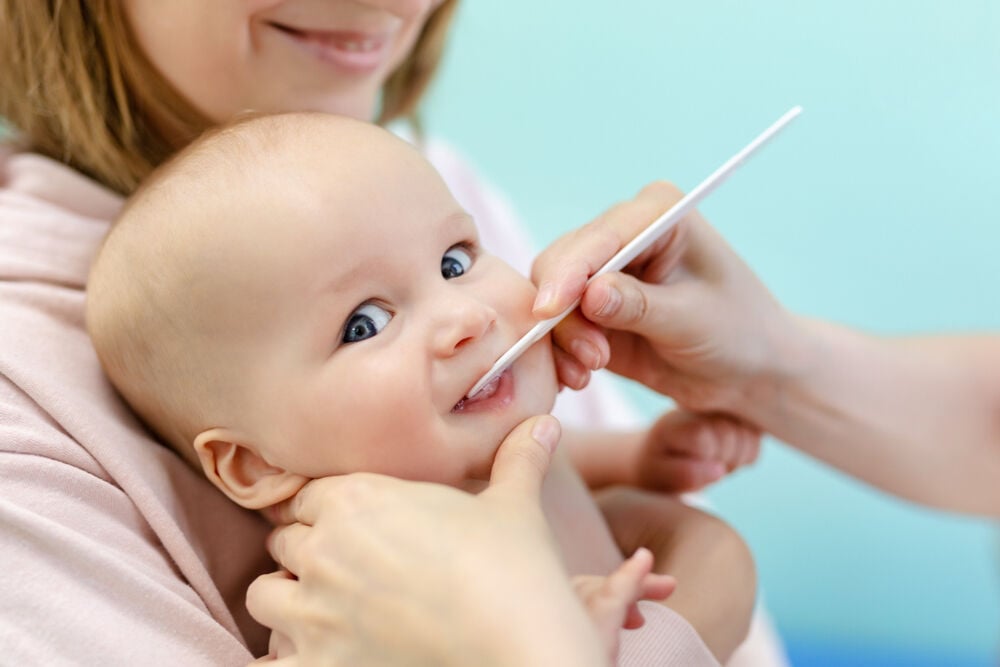-
Tracking cycle
-
Getting pregnant
-
Pregnancy
-
Help Center
-
Flo for Partners
-
Anonymous Mode
-
Flo app reviews
-
Flo Premium New
-
Secret Chats New
-
Symptom Checker New
-
Your cycle
-
Health 360°
-
Getting pregnant
-
Pregnancy
-
Being a mom
-
LGBTQ+
-
Quizzes
-
Ovulation calculator
-
hCG calculator
-
Pregnancy test calculator
-
Menstrual cycle calculator
-
Period calculator
-
Implantation calculator
-
Pregnancy weeks to months calculator
-
Pregnancy due date calculator
-
IVF and FET due date calculator
-
Due date calculator by ultrasound
-
Medical Affairs
-
Science & Research
-
Pass It On Project New
-
Privacy Portal
-
Press Center
-
Flo Accuracy
-
Careers
-
Contact Us
Baby Teeth Are Coming in Crooked: Surprising Causes and What to Do


Every piece of content at Flo Health adheres to the highest editorial standards for language, style, and medical accuracy. To learn what we do to deliver the best health and lifestyle insights to you, check out our content review principles.
What causes a crooked tooth?
Genetic factors play a significant role in whether a child has crooked teeth. For instance, if a baby inherits large teeth from one parent and a small jaw from the other, it will understandably lead to overcrowding in the mouth when the primary teeth emerge. This set of factors often results in crooked teeth and the associated problems.
Misalignment of the teeth can also result from an infant who is in the habit of putting his or her fingers into the mouth, like when sucking the thumb. Sucking the thumb puts pressure on both the upper and lower teeth while the thumb is being sucked and causes overcrowding in the mouth as the teeth develop. Less frequently, an overcrowded mouth can result from extra teeth.
Take a quiz
Find out what you can do with our Health Assistant
Does having crooked baby teeth mean crooked permanent teeth?
It’s not unusual for parents or carers to be concerned when they see that their baby’s teeth are coming in crooked. But before you start worrying about whether or not your little one will need braces and make an appointment with an orthodontist, bear the following in mind.
It’s actually quite common for the first teeth to be crooked — particularly the lower front teeth, which often appear like the letter v. You may also notice that the upper teeth are larger than the lower, or that the upper teeth emerge first. These are all completely normal findings and should cause you no worry about your infant’s dental health.
In practical terms, there’s no way to reliably predict how your child’s adult teeth are going to look based upon the appearance of the baby teeth. By around two and a half years of age, your little one will probably have a full set of 20 primary teeth — but don’t expect them to come out evenly and in perfect proportion.

So, what should you do if you notice your baby’s teeth coming in crooked? Keep the following advice in mind as you consider your options.
Although having crooked teeth in early infancy doesn’t necessarily mean that the adult teeth will be misaligned, there’s no harm in seeking the expert opinion of a trusted orthodontist. Modern orthodontic practices mean that you don’t need to wait until the adult teeth have emerged before addressing these issues.
At the earliest stages, your dentist can investigate any abnormalities in your baby’s mouth and suggest a course of action that will address them. Nowadays, relatively young children can be fitted with a removable retainer-like device that helps to guide the development of the arches of the mouth and provides a better environment for the developing teeth.
If you’re reluctant to proceed with any intervention this early in your child’s life, consider this: by being proactive about your baby’s teeth, you may lessen the complexity of any later treatment that is required. Again, though, your orthodontist is in the best position to inform you of the range of available options.
Can you prevent your baby's teeth from growing in crooked?
Given that crooked teeth are so strongly influenced by genetic factors, you may not be able to do much to prevent them from occurring. Perhaps the only exception to this is discouraging your baby from sucking a pacifier or their thumb. While this is comforting to many children, it can lead to problems in the development of the teeth.
When your baby bites down on a pacifier or their thumb (or any other finger for that matter!), it puts pressure on the upper and lower teeth and can cause them to develop misalignments, resulting in an overcrowded mouth. This creates conditions that make crooked teeth more likely.
Many health professionals recommend avoiding pacifiers beyond 12 months of age. Thumb sucking may continue long past this time, but try to make sure it stops at least before the adult teeth emerge. Bear in mind that this habit can be very hard for children to break and may require considerable support from parents or carers.
Along with these specific tips, keep the following general guidelines in mind when caring for your baby’s teeth:
- You can start brushing your little one’s teeth as soon as they emerge. Use a baby toothbrush with only a small fleck of toothpaste, and don’t worry if you find that you can’t cover the teeth very well. One of the most important things at this stage is to get your baby into the habit of daily brushing. You can also set a good example for your child by letting them watch you brush your own teeth.
- Be aware of the danger of sugar to your baby’s teeth. Sugar causes decay of the teeth. The degree of damage depends upon the amount of sugar, how often it is consumed, and how frequently. Hard candies and sweet drinks can be particularly harmful, as they remain in contact with the teeth for an extended period of time. In addition to reducing the consumption of these foods, encourage your child to eat fruit instead.
- It’s important for your child to develop a healthy attitude towards visiting the dentist. This is a crucial step in helping them to learn the importance of good oral hygiene. You can start by taking your baby with you when you have an appointment, but their teeth should be regularly examined by a professional from the earliest stages.


Hey, I'm Anique
I started using Flo app to track my period and ovulation because we wanted to have a baby.


The Flo app helped me learn about my body and spot ovulation signs during our conception journey.


I vividly
remember the day
that we switched
Flo into
Pregnancy Mode — it was
such a special
moment.
Real stories, real results
Learn how the Flo app became an amazing cheerleader for us on our conception journey.




